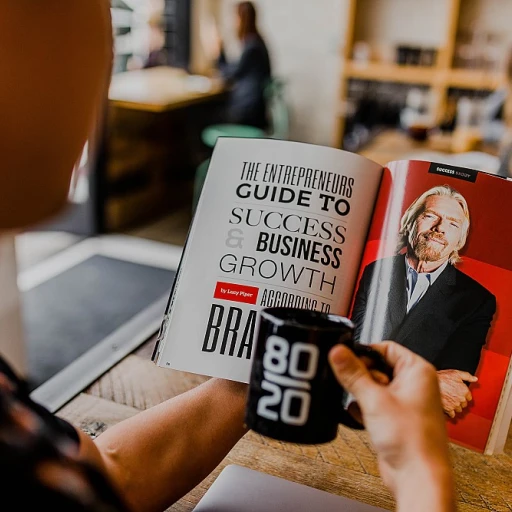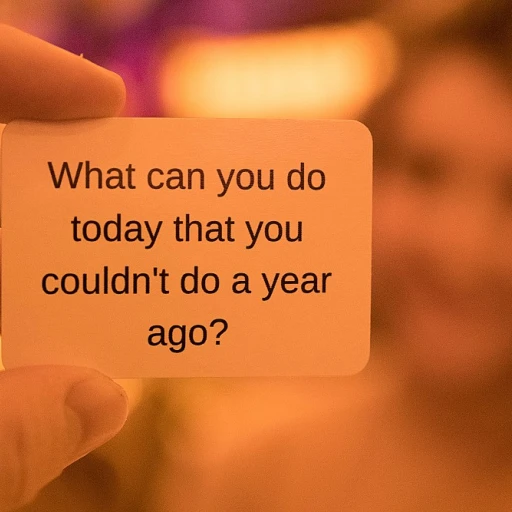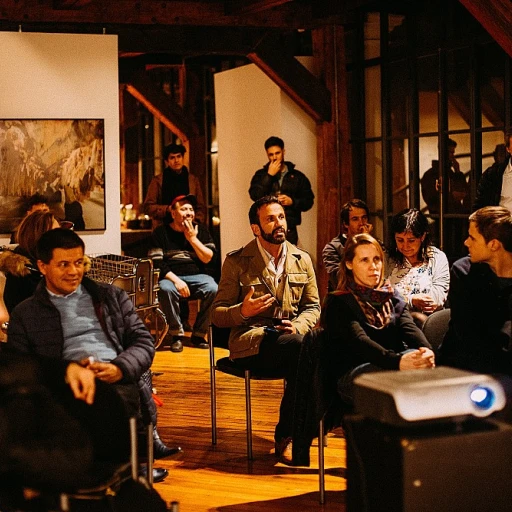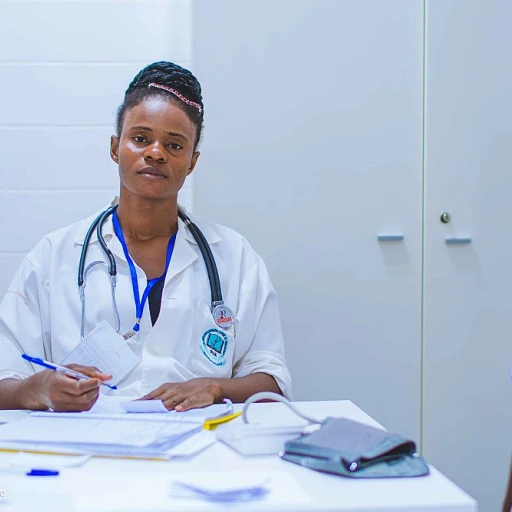
Understanding the importance of dei in candidate experience
Why DEI Matters in the Candidate Journey
In today's competitive talent acquisition landscape, organizations are realizing that diversity, equity, and inclusion (DEI) are not just buzzwords—they are essential for creating a positive candidate experience and attracting top talent. When companies prioritize DEI in their hiring process, they send a clear message to candidates: everyone is valued, and diverse perspectives are welcome. This approach not only helps build a more inclusive workplace but also strengthens the overall company culture.
Research shows that candidates are increasingly seeking employers who demonstrate a commitment to diversity inclusion and equity inclusion throughout the recruitment process. A transparent and inclusive approach to hiring can help reduce unconscious bias, making it easier for diverse talent to feel comfortable and confident during interviews. This is especially important as the interview process is often the first real interaction a candidate has with a company, shaping their perception of the organization and its values.
- Attracting diverse talent: DEI initiatives in recruitment help organizations reach a broader pool of candidates, increasing the chances of finding the best fit for the team.
- Enhancing the candidate experience: Candidates who feel respected and included are more likely to have a positive impression of the company, regardless of the outcome.
- Reducing bias in hiring practices: Structured interview questions and clear job descriptions can help minimize bias and create a fairer process for all candidates.
- Building a strong employer brand: Companies known for their commitment to DEI are more likely to attract and retain top talent, giving them a competitive edge in the market.
Organizations that embed DEI into every stage of the recruitment process—from crafting job descriptions to designing interview questions—are better positioned to create an inclusive candidate experience. This not only supports the company's DEI recruitment goals but also helps foster a sense of belonging among all candidates.
If you're interested in learning more about how DEI can impact your job search and interview success, check out these insights for job interview success.
Common barriers to an inclusive dei candidate experience
Recognizing Hidden Obstacles in the Recruitment Process
Creating a truly inclusive candidate experience in HR interviews means first acknowledging the barriers that can prevent diversity, equity, and inclusion (DEI) from thriving. Many organizations aim for a diverse team, but unintentional hurdles can still affect candidates throughout the hiring process. These challenges can impact how candidates perceive your company culture and influence whether top talent chooses to join your organization.
- Unconscious Bias: Even well-intentioned interviewers may hold unconscious biases that influence their decisions. This can affect how interview questions are asked or how a candidate's responses are interpreted. Bias can show up in many forms, from assumptions about a candidate's background to preferences for certain communication styles.
- Non-Inclusive Job Descriptions: The language used in job descriptions can unintentionally exclude certain groups. Words that seem neutral may actually discourage diverse talent from applying, limiting the pool of candidates and affecting the overall recruitment process.
- Lack of Structured Interview Processes: When interviews lack consistency, it becomes easier for bias to creep in. Without a clear structure, candidates may not be evaluated on the same criteria, which can undermine equity inclusion efforts.
- Limited Accessibility: Not all candidates have the same access to technology or physical spaces. If the interview process does not account for different needs, it can exclude qualified talent and hinder diversity inclusion.
- Insufficient DEI Training: Interviewers who are not trained in DEI hiring practices may unintentionally create an unwelcoming environment. This can affect the candidate experience and reduce the effectiveness of DEI initiatives.
Addressing these barriers is essential for building an inclusive workplace and attracting diverse talent. By understanding the common obstacles in the hiring process, organizations can take meaningful steps to improve their DEI recruitment strategies and create a more equitable candidate experience. For more insights on how to stand out in HR job interviews, explore how to shine as employee of the quarter during your HR job interview.
Preparing interviewers for dei-focused interviews
Building Interviewer Awareness and Skills for DEI
A strong candidate experience in the hiring process depends on how well interviewers understand and apply diversity, equity, and inclusion (DEI) principles. Interviewers are the face of the company during recruitment, and their approach can make or break the perception of an inclusive workplace. Here are some practical ways to prepare interviewers for DEI-focused interviews:- Provide DEI Training: Regular training sessions help interviewers recognize unconscious bias and understand the impact of diversity equity and inclusion in the recruitment process. This can include workshops on inclusive language, cultural awareness, and equitable evaluation methods.
- Standardize Interview Questions: Using structured interview questions reduces the risk of bias and ensures every candidate is assessed fairly. This also supports a consistent candidate experience and helps interviewers focus on skills and potential rather than background or personal characteristics.
- Review Job Descriptions Together: Before interviews, teams should review job descriptions to ensure they are free from biased language and accurately reflect the skills needed. This step helps attract diverse talent and sets the tone for an inclusive hiring process.
- Encourage Self-Reflection: Interviewers should be encouraged to reflect on their own perspectives and potential biases. This self-awareness is key to creating a more inclusive and equitable interview process.
- Foster a Culture of Feedback: After interviews, sharing feedback among interviewers can highlight areas for improvement in DEI practices. This ongoing dialogue helps teams learn from each other and strengthen the overall recruitment process.
Leveraging Technology for Inclusive Interviews
Technology can play a significant role in supporting DEI initiatives during interviews. For example, platforms that enable remote hiring can help organizations reach a broader pool of candidates and reduce location-based barriers. To learn more about how technology can support effective and inclusive remote hiring, check out this guide on how SmartRecruit enables effective remote hiring.Empowering Interviewers to Champion DEI
When interviewers are equipped with the right tools and mindset, they can help build a more diverse and inclusive team. This not only enhances the candidate experience but also strengthens the company culture and helps attract top talent. By prioritizing DEI in every step of the interview process, organizations can create a fair and welcoming environment for all candidates.Designing interview processes with dei in mind
Structuring Interviews to Promote Diversity and Inclusion
Designing an interview process with DEI in mind means every step should help create a fair, inclusive, and welcoming experience for all candidates. A well-structured process not only attracts diverse talent but also ensures that every candidate has an equal opportunity to showcase their skills.- Standardize Interview Questions: Use consistent interview questions for each role. This reduces unconscious bias and helps compare candidates fairly. Tailor questions to assess both technical skills and alignment with the company’s values around diversity, equity, and inclusion.
- Inclusive Job Descriptions: Review job descriptions for biased language or requirements that may unintentionally exclude certain groups. Focus on essential skills and experience, and highlight the company’s commitment to an inclusive workplace and DEI initiatives.
- Diverse Interview Panels: Assemble interview panels that reflect the diversity you want to see in your organization. This sends a clear message about your company culture and helps candidates feel represented and valued.
- Accessible Interview Formats: Offer flexible interview formats, such as virtual interviews or accommodations for candidates with disabilities. This supports equity inclusion and ensures all candidates can participate fully in the recruitment process.
- Bias Awareness Training: Provide ongoing training for interviewers on recognizing and mitigating unconscious bias. This helps create a more objective and equitable hiring process, supporting the broader goals of DEI recruitment.
Embedding DEI into Every Step of the Hiring Process
A DEI-focused interview process doesn’t stop at the questions or the panel. It’s about embedding diversity, equity, and inclusion into every stage of talent acquisition. This includes:- Ensuring all communication with candidates is respectful and inclusive
- Providing clear information about the company’s DEI hiring practices and values
- Regularly reviewing and updating recruitment process policies to reflect best practices in diversity equity and inclusion
Supporting candidates before, during, and after interviews
Clear Communication and Transparency
Supporting candidates throughout the hiring process starts with clear, timely communication. Candidates value transparency about the recruitment process, interview stages, and what to expect next. Sharing details about your company culture, diversity equity and inclusion (DEI) initiatives, and the structure of the interview process helps candidates feel respected and informed. This approach reduces anxiety and demonstrates your organization's commitment to an inclusive workplace.
Accessible and Inclusive Interview Practices
Ensuring accessibility is a key part of DEI hiring. Offer accommodations proactively, such as alternative interview formats or additional time for assessments. Ask candidates if they need any support or adjustments before the interview. This not only helps diverse talent feel welcome but also signals that your company values equity inclusion throughout the recruitment process.
Reducing Unconscious Bias During Interviews
Interviewers should be trained to recognize and minimize unconscious bias. Structured interview questions and consistent evaluation criteria help create a fairer candidate experience. Consider using diverse interview panels to reflect your organization's commitment to diversity inclusion. This approach helps candidates from all backgrounds feel seen and valued during the interview process.
Providing Feedback and Ongoing Support
After the interview, timely and constructive feedback is essential. Whether a candidate is moving forward or not, personalized feedback shows respect and helps candidates grow. This step is often overlooked in traditional hiring practices but is crucial for a positive DEI candidate experience. It also strengthens your employer brand and attracts top talent who value transparency and growth.
Building Lasting Relationships with Candidates
Even after the recruitment process ends, maintaining communication with candidates can help build a talent pipeline for future opportunities. Engaging with candidates through follow-up messages or talent communities demonstrates your organization's ongoing commitment to diversity equity and inclusion. This approach not only supports DEI recruitment but also helps your team attract and retain diverse talent over time.
Measuring and improving the dei candidate experience
Tracking Progress with Data and Feedback
To truly enhance the candidate experience with DEI in HR interviews, organizations need to measure what matters. Collecting data and feedback at every stage of the recruitment process helps identify gaps and opportunities for improvement. Consider using anonymous surveys for candidates after interviews to gather honest insights about the inclusivity of your hiring process. Analyze metrics such as candidate drop-off rates, diversity of shortlisted applicants, and feedback on interview questions. This data-driven approach supports continuous improvement and helps ensure your DEI initiatives are making a real impact.Key Metrics for an Inclusive Candidate Experience
Focusing on the right metrics can help organizations understand how well their DEI hiring practices are working. Here are some useful indicators:- Representation of diverse talent at each stage of the recruitment process
- Candidate satisfaction scores regarding inclusion and fairness
- Time-to-hire for candidates from underrepresented groups
- Feedback on job descriptions and interview questions for bias or exclusionary language
- Retention rates of new hires from diverse backgrounds













